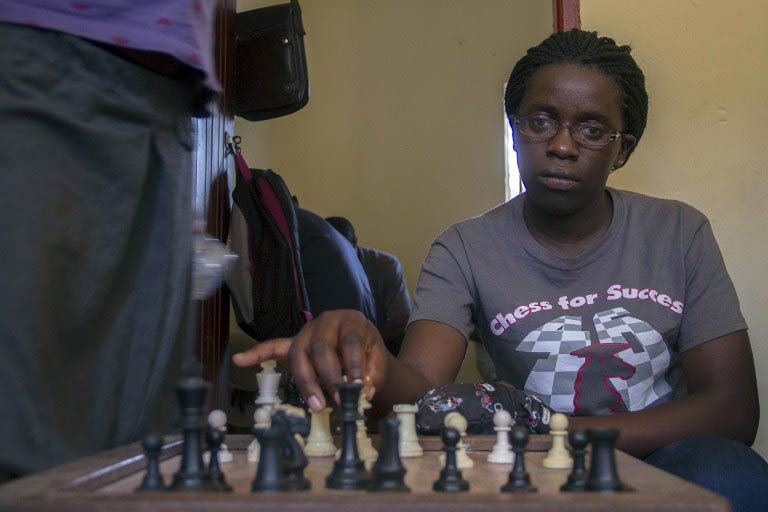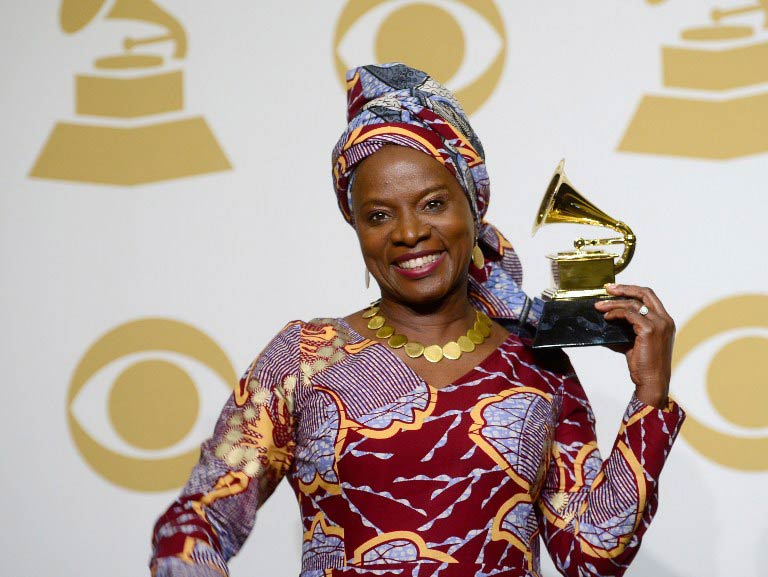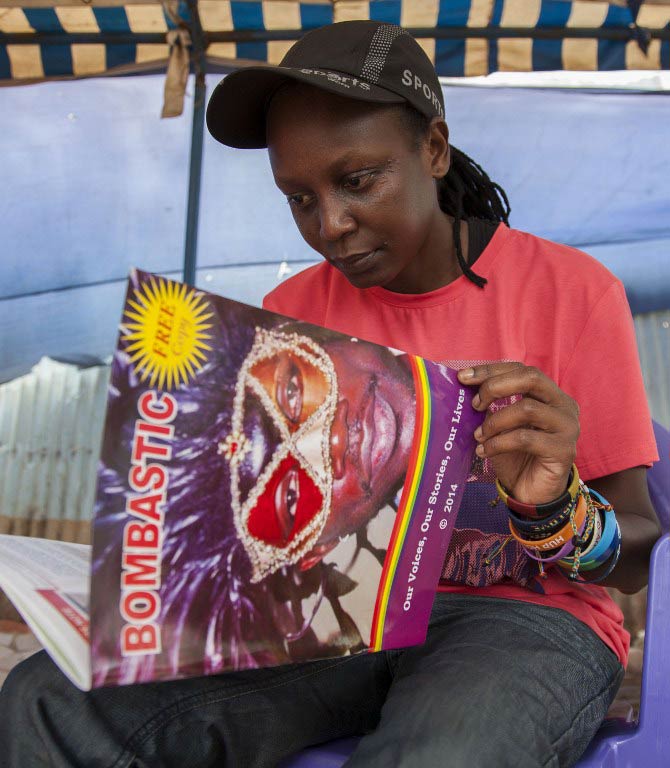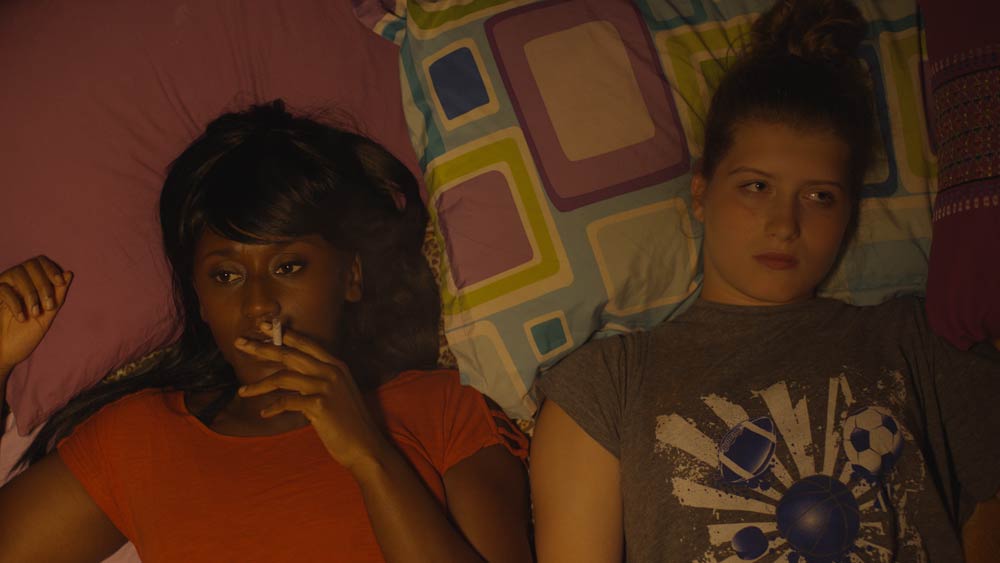
Hot on the heels of the successful web series An African City in which she plays a leading role, actress and director Nana Mensah brings us her first independent feature film, Queen of Glory, about a Ghanaian-American PhD student who inherits her deceased mother’s Christian bookstore in The Bronx, NY. Nana took the time to talk to Valérie Bah about her latest project, gendered expectations, West African investment in the arts, and the perks of having creative control.
Queen of Glory has an intriguing plotline. I understand that you drew a link to Lena Dunham’s project, Girls, about being young, having a “quarter-life crisis,” and finding oneself in New York City?
Nana Mensah: Sure, but I think the Lena Dunham connection is closer to her independent film, Tiny Furniture (2010), which led up to Girls. Tiny Furniture was a film of a comparable budget, which basically explored that quarter-life crisis idea. My character is a prodigy, a PhD candidate named Sara Obeng, who is looking to leave her research to marry her former lover and married professor to Ohio when her mother suddenly dies and leaves her Christian bookstore in a neighborhood where she grew up – they call it “Little Ghana,” the Pelham Parkway neighborhood in The Bronx, which is steeped in West African tradition. The project centers on her return home and depicts all the things that come with that; seeing family and getting everything together.
Are you then looking at drawing more of an audience within the African diaspora?
NM: Well, we are focusing primarily at an American market, with an American distributor. So, we’re looking at a diaspora audience, but also white people who go to see independent films. We’re not speaking only in terms that a diaspora can understand. The hope is that anybody who’s had to return home in a time of crisis will be able to understand it.
Generationally speaking, that taps into the concern experienced by millennials, who may not have the resources to start off their lives as the Baby Boomers did; buying a house, finding employment, etc.
NM: Sure, I mean, she’s a PhD student, so struggling financially, though her return home is brought on by her mother’s death. But yes, she’s also very much struggling in every way. She has a boatload of intellectual capital, but very little capital capital.
And how much of you is there in this Sara Obeng character?
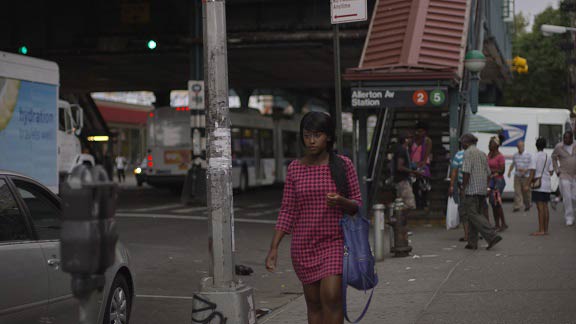
NM: Oh gosh, no. Not much at all. She’s actually completely fictional. I just have a BA, I don’t have a masters from anywhere. My mother is still alive and well, though she is a small business owner, but she doesn’t own a Christian bookstore. My parents are religious, but certainly not Evangelical or anything of that nature. There’s a commonality, I would say, in terms of the general experience – and I was definitely not having an affair with my university professor [laughter] – in terms of the understanding of having parents from the “Old Country,” with a different value system.
There’s a fracture, especially for African women because our parents, unlike a lot of other recent immigrants, our parents really pushed us, and I’m speaking in mass generalities here, but our parents really pushed us as women to succeed, they push us to the best universities, the best experiences. We are told that we can do anything and everything, but, we must have hot jollof on the stove by the time we get home [laughter].
Here’s one thing that strikes me – the fact that you talk about the high expectations for second generation African women. In a TEDx talk, you mentioned that within the African diaspora, there’s this sense that you can do anything, you can be anything, but the arts and culture are considered off-limits and may not be promoted as a viable career. Can you elaborate on that?
NM: I think that that’s a place that we have yet to go to as a people, at least Ghanaians. I think we really respect people with professional degrees; doctors, lawyers, and investment bankers. I think that because we have not yet had a burgeoning middle class, the arts do not factor in yet. How can you focus on art and portray the human experience en masse when people are hungry, and there’s no infrastructure? Art, in some ways, can be viewed as a luxury. I think of it as a necessity, but I recognise that in the face of hunger or political unrest or civil war, it’s difficult to say that art is paramount. Especially in Ghana, now that we have had a certain number of political changeovers, without any unrest, we have become a shining star in West Africa in terms of stability.
Mind you, we’ve come upon some hard times recently, but ultimately, it’s a very stable country, ripe for investment and you are seeing the development of a middle class with new foreign businesses coming in. I think in the next 10-15 years, what we’re going to see is a culture that’s already very heavily steeped in artistic traditions. I mean, Ghanaian carvings, weaving, the Kente cloth, and whatnot, those things are almost synonymous with Africa as a whole. I think as we get a more solid middle class, the arts will become a voice for us to tell our stories. If I may use the example of An African City, a lot of people gripe that it doesn’t portray everybody’s experience, but that’s the thing, we are not a monolith.
You’re a well-known face from other projects, such as An African City and Love or something like that (2014), are you switching one for the other?
NM: Not at all. Much like Lena Dunham and Mindy Kaling, I would love to have a versatile approach and be able to wear these different hats – producer, director, writer, actor – and I’m not a megalomaniac [laughter], I just want to be responsible for the stories I’m telling. I’ve been on other people’s sets; I’ve been on my own set. It is so stressful to wear hats, but also rewarding because any mistake is yours. If something goes wrong, it’s on me, and I like that responsibility. That, rather than being the star of somebody else’s project who didn’t think it through or have the artistic sensibilities that I do. There’s nothing worse than sitting in a premiere and thinking, “Oh my god.” I don’t want to do that. So, the more control, the better. Even being a writer and making sure that the words sounds true and flow easily out of an actor’s mouth. So, I’m not necessarily saying that I’m excellent at all of these things, but I certainly like doing them. And I also see the burden of being a black woman doing these things, because there’s so few of us. And I shall do as I please until I don’t want to do it anymore.
It seems like this type of responsibility is good news for other black women looking for projects or stories that might not be told the same way by a white writer or producer.
NM: And a male producer or director. In a lot of the stories that I see, the women are defined by their relationship to a man. They are somebody’s girlfriend or somebody’s wife, the object of a male’s affection. That is how they are defined. I’m really interested in pushing forward a dialogue that doesn’t have to do with that. A perfect example is the movie Wild (2014), starring Reese Witherspoon and based on the memoir by Cheryl Strayed, coming out in the States. First of all, the film is revolutionary because you see a woman onscreen doing her own thing. She’s not anybody’s wife or daughter. Her mother just died. She’s only owned by herself. That is already a huge step for feminism in the media. But then, somebody made the very astute point about what if that role had been cast as a black woman, a former drug addict who gets to hike the Pacific Coat Trail. Black women never get to tell that kind of story. It’s very rare for a black woman to be doing that type of role – imagine Taraji P. Henson in that role instead of Reese Witherspoon? You realise that there are some limitations to the kinds of roles that black women are allowed to tell, and it’s kind of mind-blowing. So we need to broaden the spectrum so that something like that wouldn’t be far-fetched.
An interesting exercise would be to look at this year’s past releases, to see whether they pass the Bechdel Test*, or even the Black Bechdel Test**?
NM: Yes, the Black Bechdel Test is a whole other story [laughter]…
* Bechdel Test: Asking if a work of fiction features two women who talk to each other about something other than a man
** Black Bechdel Test: Similarly to the Bechdel Test, asking if a work of fiction features two black people who talk to each other about something other than a white person.

